How The Igbo Reflect The Arrival Of A Newborn Baby
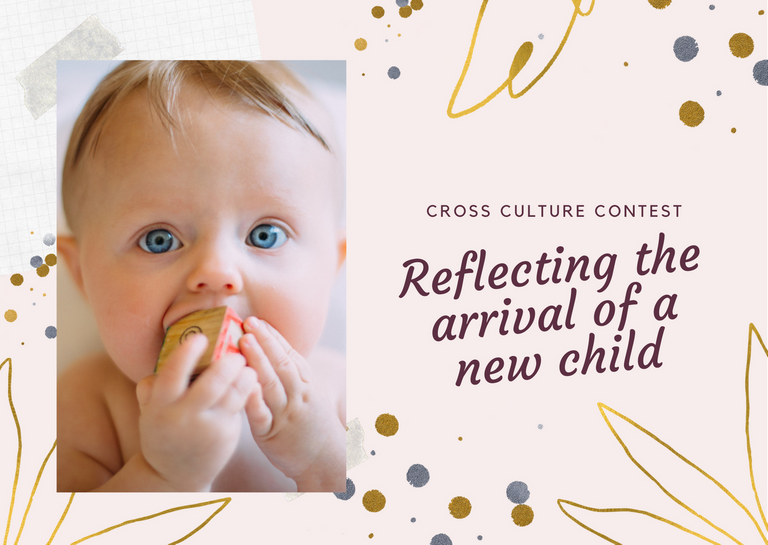
Image Downloaded from Contest Announcement Post @Hive Cross Culture
This is another aspect of our versatile culture as brought to us by the #crossculture community, thanks to @starstrings01 @selfhelp4trolls and @blogging-team . The birth ofa newborn child is welcome in some sort of ways in diverse African cultures. In this contest, I will concentrate on the modalities that are observed among the Igbo people when a new child is born.
The birth of a newborn among the Igbo people is held in high esteem. From when a couple is joined in marriage, to conception, pregnancy, and childbirth, everyone in the family looks forward to when the child will be delivered. This is one thing that cannot be pushed aside in an Igbo marriage. The gender of the child also indicates a lot but that is a topic for another day.
The Igbo traditional belief in childbirth is usually attached to the ancestors. The tradition holds that children in one way or the other have an attachment to a CHI (a chi is believed to be a guardian which is usually from one dead man or woman in the family). The tradition believes so much in incarnation. However, let it be noted that five procedures are followed in welcoming a newborn child among the Igbo people.
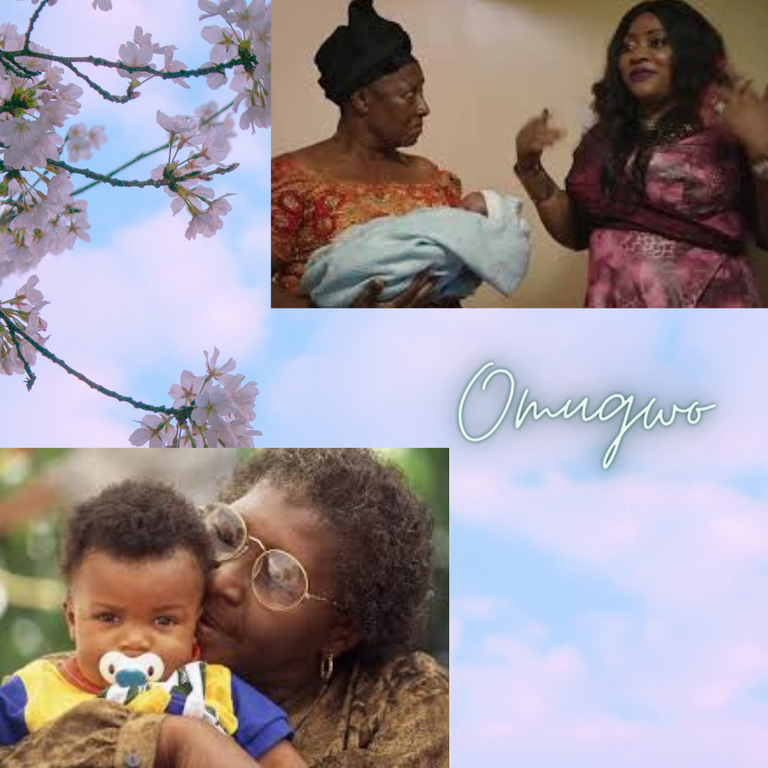
Omugwo (visitation by the newborn child's maternal grandmother): As soon as a newborn child arrives, the mother of the baby receives her mother who comes to take up postpartum responsibilities for both mother and child. During the period, that grandmother baths the child with traditional methods of stretching the joints so the baby matures strong and able. The baby mother is served some special traditional recipe mistake without oil at least for the first few days or weeks after birth. This exercise usually ends after about two months or three or depending on the choice of the mother of the newborn baby or the visiting grandmother.
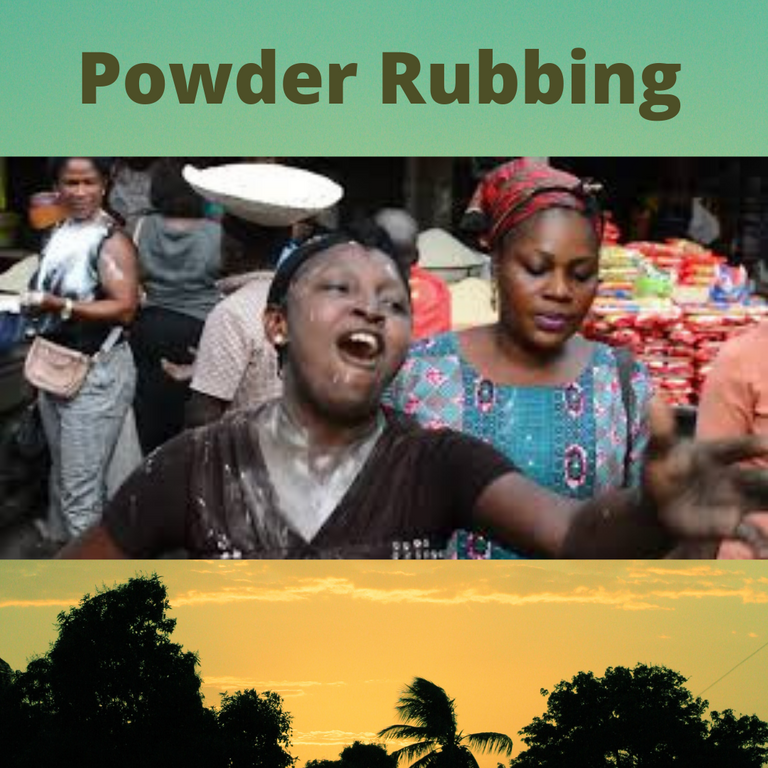
Paying Homage & Powder Rubbing: Please, don't laugh at this. When a newborn baby comes to a family, the relatives and well wishes especially women dance in joy and gun powder on their necks in celebration of the newborn. Among the men, they go as far as running the powder on their heads.
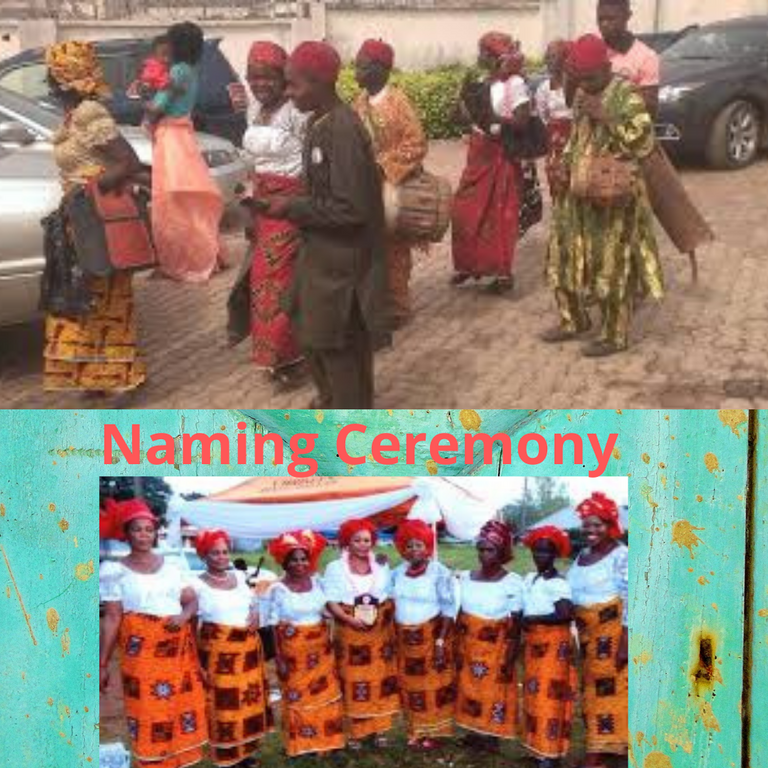
Naming Ceremony This is usually held between seven and twelve days after the child is born. Here, the newborn is given a name for which he would be called or known. Most times, the child is named according to the circumstances surrounding his/her birth. It is usually a glamorous event.
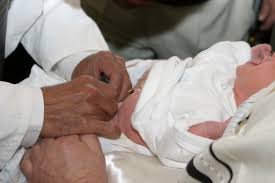
Circumcision/is another important aspect of welcoming or caring for a newborn among the Igbo people. This is the removal of the foreskin of the me organ. The female newborn child use for be circumcised too until when it was detected that it poses some dangers for the girl child, in the name genital mutilation and it was stopped.

The arrival a newborn baby among the Igbo is a very big and respected aspect of culture and is still being observed and guarded with utmost jealousy.
To participate in this contest, I am inviting @hillarypowers @maryjacy and @cool08.
Images 2-5 were edited and redesigned @Canva.com
**To participate in this contest, read up the contest announcement post Here
I guess it's not only my culture that rubs powder to welcome the arrival of a newborn baby and for the other rites, they are also performed except the dancing around.
Omugwu is a rite that can never be missed by the Igbos.
Nice article.
Hehe..that powder rubbing is entirely a different ball game with the Igbo. Thanks for reading my blog.
Another thing which I saw here which caught my attention was the part of rubbing powder on the neck and dancing around, the men also who run powder on their head. For the male, will they have to barb their hair before rubbing?
Electronic-terrorism, voice to skull and neuro monitoring on Hive and Steem. You can ignore this, but your going to wish you didnt soon. This is happening whether you believe it or not. https://ecency.com/fyrstikken/@fairandbalanced/i-am-the-only-motherfucker-on-the-internet-pointing-to-a-direct-source-for-voice-to-skull-electronic-terrorism
Same with the Yorubas too. Immediately the child is born, the maternal grandmother would come to stay with the mother in taking care of the baby especially taking the bath part.
And in most cases, if she isn't alive, the paternal grandmother takes over it.
U love this omuguo of a thing. This is where the parents of both the husband and the wife will have to quarrel if they have not been agreeing before. Hehehe..I do watch this on their movies.
I have also seen that when the child expecting is a boy, wow...it will be a great celebration for the family as the ibos love male child.
😂 That powder aspect is not funny nau but I will try not to laugh she 😂 nice one there.
The igbo culture is very known for the Omugwo aspect, I think it originated from the igbos right? My culture does it too but not as the igbos.
That circumcision aspect is kinda scary to me since I learnt how it's been done, thank goodness they stopped the one for females.
Nice entry, all the best in the contest.
Thank you @merit.ahama, our culture is an integral part of our lives and it must be handed down to the next generation.
I don't think there would be any culture that won't be handed down to next generations, it's almost like an automatic thingy